|
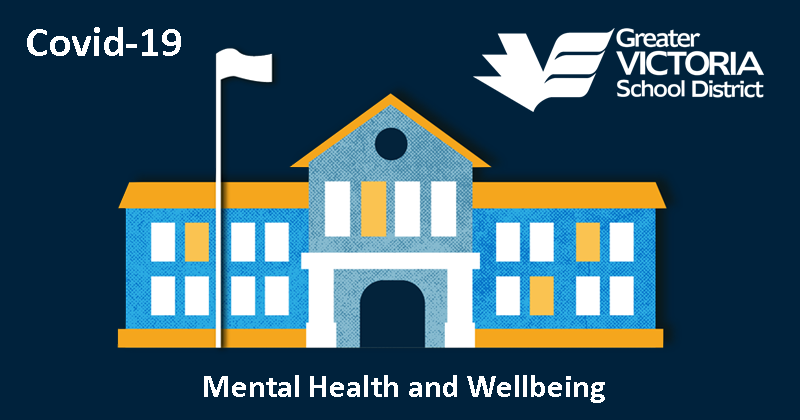
| April 6, 2020
COVID - 19
Secondary Snapshot
Anxiety and Depression
|
| |
|
|
|
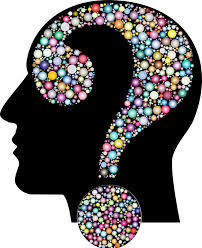
| Anxiety and Depression are two of the most common mental health concerns for adolescents at any time. Now, we add in uncertainty, isolation, a lack of routine, changed sleeping and eating patterns and very real fears about all of our physical and mental health.
This is an important opportunity to identify what is a distress and what is a disorder, coping tools to support from home, and resources available in the community and online if youth are really struggling. It is crucial that as a community we support each other with our physical and mental health.
|
|
|
|
|
|
Depression vs Sadness
We all experience sadness at some time; it means we are emotionally connected to ourselves, community and environment.
However, depression is different as it involves overwhelming feelings of hopelessness and dread that don't go away. Depressive episodes tend to last a long period of time, and although they may be triggered by events (ie the current crisis), they last longer, and are rarely impacted by more positive developments. Depression and anxiety can be linked, and many youth report struggling with both. | What to do about Depression If you are concerned about yourself or someone close, the best option is to consult with a mental health professional. Options include: - scheduling a call with your GP - calling the Vancouver Island Crisis Line at 1-
888 - 494-3888- scheduling a meeting with a school counsellor by calling the school. If you believe someone is currently at risk for serious self harm and/or suicide call for support immediately or dial 911.
|
| |
|
|
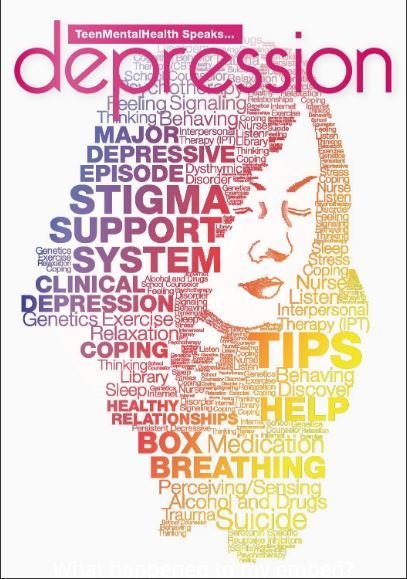 | Teen Mental Health Speaks Series:
Teenmentalhealth.org offers a variety of resources to support teens and mental health. There are a series of downloadable magazines that focus on a variety of mental health concerns. For example, the magazine cover to the left focuses solely on the signs and symptoms of depression and strategies for coping. The other topics in the series are: Bipolar Disorder, Panic Disorder, Social Anxiety Disorder, Obsessive Compulsive Disorder and Attention Deficit Disorder. Teen mental health also offers tools for identifying if a concern is a distress or a disorder and offers supports for families with navigating mental health and stressors connected directly to the current pandemic.

|
| |
|
|
|
|
Everyone experiences Anxiety! Anxiety is our body's normal reaction to perceived danger or important events. It is natural and expected that all of us are experiencing times of anxiety during the pandemic.
Anxiety triggers an automatic "flight, fight or freeze" response that affects our thoughts, body and emotions. It is very helpful in times of danger, as the increased adrenaline allows us to escape unsafe situations (flight), ward off danger (fight), or avoid notice from an attacker (freeze). | When Anxiety can become a problem: Although anxiety protects us in the face of real danger, it can become a problem when it:
-goes off when there is no real danger or threat
-happens a lot
-feels very intense
-stops the individual from participating in regular activities
-leads to unhealthy coping tools
|
| |
|
| Anxiety and COVID-19: Town Hall
|
|
|
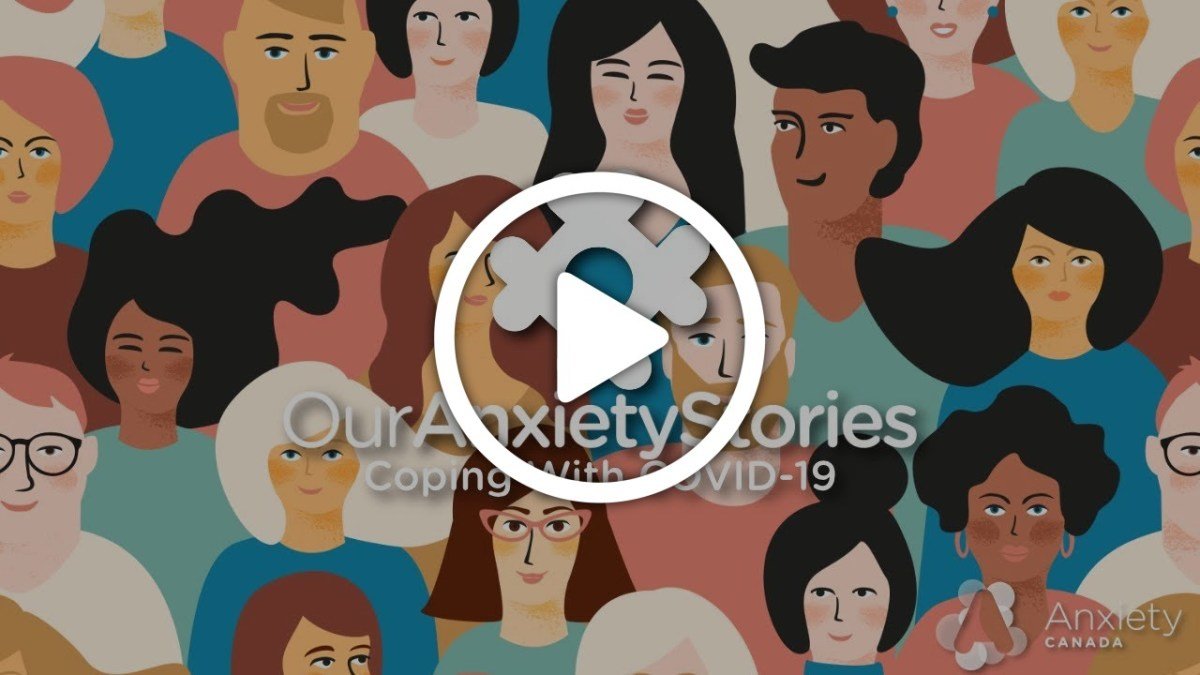
| Anxiety Canada hosted a town hall meeting for individuals who are experiencing increased anxiety due to self-isolation and the dramatic changes we are all experiencing in such a short time. The town hall focuses on facts about anxiety and proven coping strategies from an international panel of anxiety experts.
Click on photo to the left to watch the video
|
|
|
|
|
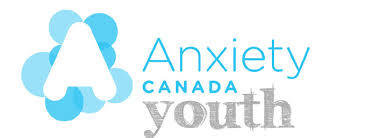 | What is my Anxiety Plan?
My Anxiety Plan (MAP) is an anxiety management program based on CBT (cognitive-behavioural therapy). CBT is a treatment that was developed through decades of research and has been shown to be one of the most effective treatments for anxiety struggles. MAP is a resource for parents and caregivers to “coach” anxious children or teens using practical strategies and tools to manage anxiety. MAP includes 6 units with 46 lessons. Families can create an account to access this free resource (see below).
|
|
|
|
How does MAP work? Anxiety Canada encourages caregivers to review the material first, and once familiar with it, work through it with your teen. Make sure to work through the various units and lessons at your own pace. As this is a journey and not a race, you may choose to go through all 6 units, lesson by lesson, over the course of weeks or months. Alternatively, you may prefer to skip around the various units, focusing only on relevant lessons, knowing you can return at a later date and work through the rest.
|
| |
|
|
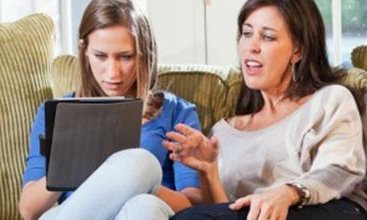
| Finally, you and your youth can decide whether you wish to schedule formal “coaching” time on a weekly basis to review the lessons, or whether you prefer to do this work when the timing feels right.
The point is that there is no “right” way to use this material, and while it is recommended that families proceed through the units and lessons in the specified order, the goal is to inspire teens to learn.

|
| |
|
|
|
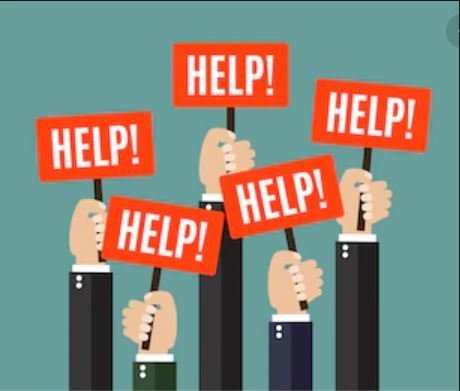 |
Anxiety Canada includes resources, coping strategies and education for youth and
care-givers Canadian Mental Health Association has specific information about mental health and the pandemic, as well as links to the provincial
organizations Kelty Mental Health is the mental health resource centre for BC Children's Hospital and links youth and caregivers to many provincial resources
|
|
|
|
Aboriginal Ways Tried and True This resource connects, through the Canadian Mental Health Association, to resources that offer an indigenous lens to coping with mental health concerns.
|
| |
|
|
|
|
|
| Mental and Physical Health Resources for Families:
|
|
|
|
IMCRT (Integrated Mobile Crisis Response Team: Individuals in crisis can call the Vancouver Island Crisis Line at 1-888-484-3888 and the staff will support and offer crisis intervention options.
|
Pediatric Mental Health Services VGH: Please call the VGH switchboard at 250-727-4212 and ask for the Crisis Team if you feel your child (under 17) is at the point of needing to come to ER for mental health reasons. Staff would like to plan ahead, to avoid close physical contact if at all possible.
|
Mental Health Services Jubilee: Please call the Jubilee switchboard and ask for the Crisis Team if you feel your child (17 and over) is at the point of needing to come to ER for mental health reasons. Staff would like to plan ahead, to avoid close physical contact if at all possible.
|
| |
|
Youth Empowerment Society: All outreach workers are maintaining contact with youth through video conferencing, text and phone. The Alliance Club is open 12 - 6pm, Monday through Thursday. They are taking new referrals, but no face to face meetings. Detox is still available in a modified capacity. Kiwanis Youth Shelter is still accepting 24 hour intake.
|
|
Child and Youth Mental Health: Victoria, Saanich and Aboriginal Child and Youth Mental Health are still accepting referrals and conducting intakes (by phone), and continue to work with current clients and families by phone, email, and soon via Skype Business. At the moment, all groups are postponed.
|
|
|
The Foundry: M - F phones are answered at 10:30am as they work to best serve youth. There are limited in-person interactions and they are moving towards telehealth and phone communication. Services still offered include communication with: Doctors, Nurses, Counselling, Peer Support and Outreach.
|
Discovery: Discovery Services is still supporting clients but through video, texting and phone. They are still accepting new referrals. Families can directly refer or can contact the school counsellor.
|
Need2 Suicide Prevention Education and Support: NEEDS2 offers support and crisis response for youth through live chat, text, discussion forums, and through Youth talk email counselling. Chat hours are between 6 pm and midnight. Call 250-386-6328 or visit youthspace.ca
|
|
|
Victoria Native Friendship Centre: Essential services will continue including daycare, shelter, and homelessness outreach. Plans are also being made for food hampers for community members connected to a program who may struggle during our time of reduced service. If you require food supports, or want to confirm if the service you access available, please contact your VNFC Outreach/Support Worker or reception: reception@vnfc.ca
|
Ministry of Children and Families: The Ministry of Children and Families continue to provide support to families, although the medium may be by phone or online, and they will continue to respond to protection concerns. Please call Centralized Screening at
1-800-663-9122 if you think a child or youth is being abused.
|
Island Sexual Health: M-F from 9 - 4pm: Offering phone/video access to Dr/nurses and sexual health services. Pleae call ahead for an appointment time at 250-592-3479, or text a sexual health question to 250-812-9374
|
|
|
|
|
|
|
|
|
| Learning Resources for Students with Complex Needs:
|
|
|
|
|
|
|
|
|